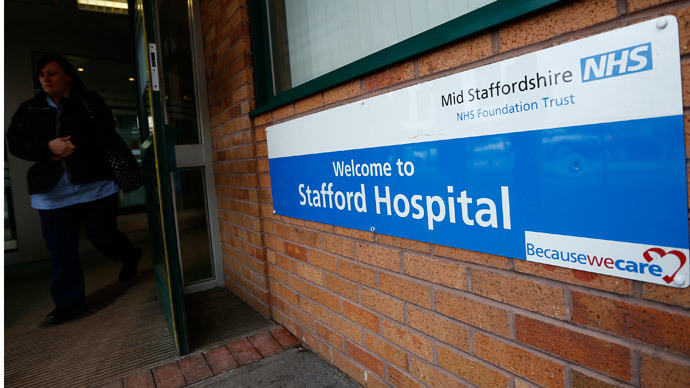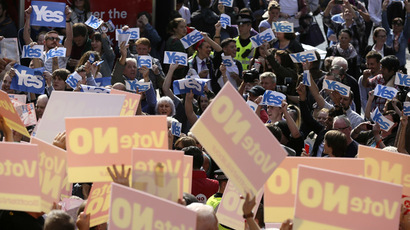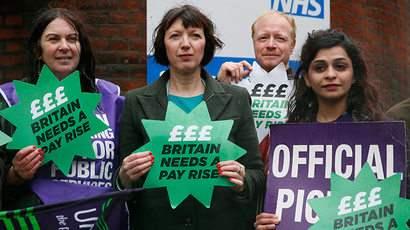NHS SOS: UK top doc says health service may use private insurance model

Britain’s most senior doctor has warned the National Health Service may be forced to abandon the provision of universal free healthcare, as the organization faces further government cutbacks.
Professor Sir Bruce Keogh, the medical director of the NHS in England, said the NHS model, where tax payers fund the service (free at point of use), would not be “sustainable in the longer term.”
Speaking to the Guardian, Sir Bruce said: “If the NHS continues to function as it does now, it’s going to really struggle to cope because the model of delivery and service that we have at the moment is not fit for the future.”
He added that huge social changes were needed if the NHS was to survive, including encouraging British people to use hospital services less in order to reduce pressure.
“If not, we will get to a place where the NHS becomes unaffordable and we will have to make some very difficult decisions, which will get to the very heart of the principle of the NHS and its values,” he said.
“This will open up a whole series of discussions about whether the NHS is fit for purpose, whether it’s affordable, and whether the [contract] with the citizen of free healthcare for all is sustainable in the longer term.”
The NHS will be a core political issue as the 2015 general election nears, with officials urging parties to pledge more funding to key services, many of which have been frozen or reduced in real terms.
Last month, Chancellor George Osborne was criticized for pledging £2 billion each year to the NHS, when campaigners actually said he was simply shifting £750 million away from the Department of Health.

The statements come as UKIP leader Nigel Farage cast doubt over the existing healthcare model, suggesting US-style private insurance systems may be needed to make the service viable in the long run.
The UKIP leader told BBC News that all political parties will need to debate the future of the NHS.
“There is no question that healthcare provision is going to have to be very much greater ... and we're going to have to find ways to do it,” Farage said.
Last year, a video from 2012 emerged showing Farage proposing an “insurance based system of healthcare,” similar to that of the United States.
However, members of UKIP have hit out at Farage, with senior members claiming UKIP voters would reject such proposals if they were to be implemented.
“Nigel is entitled to his opinion and others are entitled to theirs, we don’t whip people into all thinking the same thing, like the establishment parties,” said UKIP health spokeswoman Louise Bours MEP.
“As he has said before, he raised the idea for discussion a while ago, the party discussed it and rejected it.”
“I am certain that if the party discusses it again, we will reject it again. The vast majority of UKIP members, the British public and I will always favor a state funded NHS,” she added.
The statements came after the party sacked Tim Aker, the UKIP MEP in charge of writing its 2015 manifesto.
According to party sources, Aker was removed from his position after failing to produce the party’s policies in time for its 2015 election campaign, where the party could win at least five more parliamentary seats.














